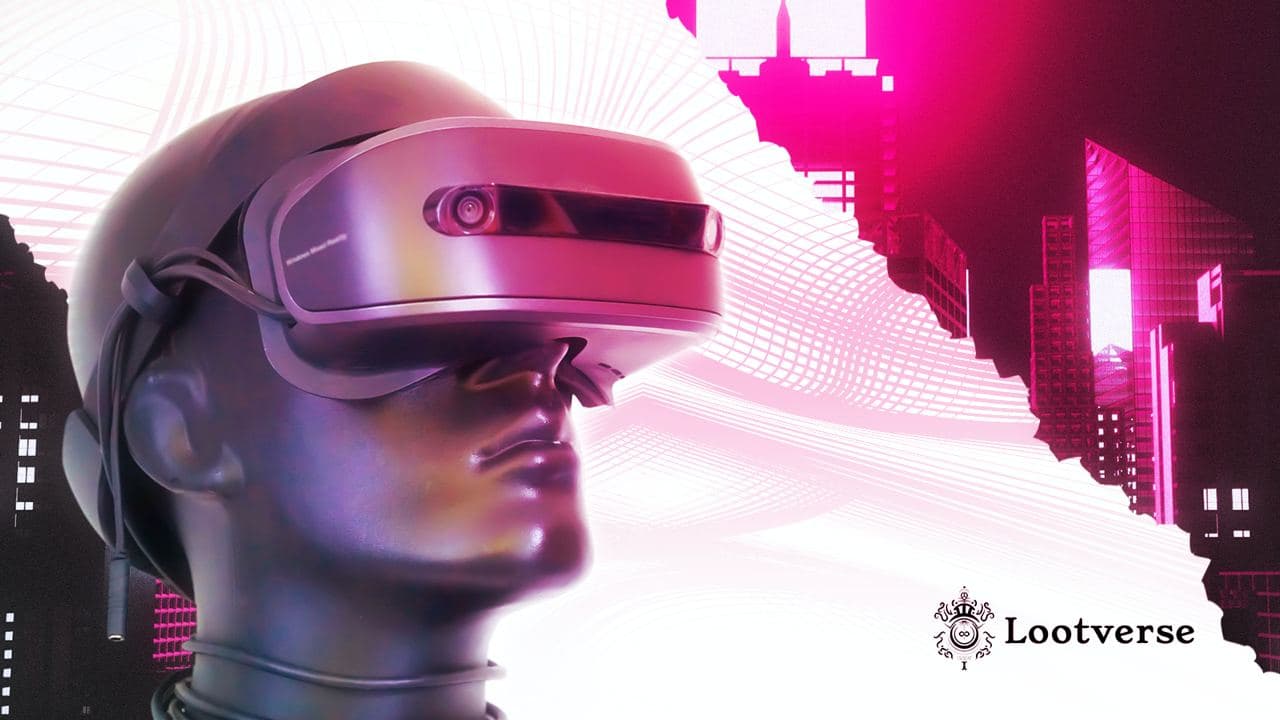Lootverse: Extended Reality (XR) evolution in the wake of the Metaverse’s development

The last fifteen years were critical to the evolution of Extended Reality (XR) technologies, driven by the crescent number and types of applications. However, unlike the odds, Virtual Reality (VR), Augmented Reality (AR), and Mixed Reality (MR) devices are evolving not only to serve the effervescent gaming and entertainment industries but also to revolutionize global markets, supporting commercial, educational, and scientific initiatives worldwide.
With XR technologies, customers can visit hotels before booking them or check the car they are interested in buying first hand. Professionals can also benefit from them. For example, architects can invite their clients to tour the project virtually, while healthcare professionals can optimize their practice, especially in complex operations. In addition, companies and institutions can offer realistic training and simulations. Of course, all of those use-cases are already happening, but the possibility of exploring the metaverse sheds new light on these devices and the experiences they can enable for the current and future generations.
So much so that giants like Meta, Microsoft, Sony, HP, Snap, and many others have a long-term vision for their XR products. Although, even start-ups are venturing to dispute a share of this booming business. AR and MR glasses and VR headsets, goggles, and controllers have been around for a while now. They have allowed users to interact with digital products, artwork, and fantasy characters in the physical world, the first step to the necessary bridge all metaverse’s enthusiasts expect to see in the coming years.
Prototypes of gloves and even sound-wave devices are also gaining momentum in the quest to simulate the sensation of touch, something close to what the American author Ernest Cline portrayed in his dystopia Ready Player One (2011), which had a film adaptation directed by Steven Spielberg (2018). Both consolidated enterprises and crowdfunded projects are hustling to create devices that are both satisfyingly immersive and affordable to encourage mass adoption. Although, this seems to be the most complex challenge on the road of XR evolution.
What Is The Role of Smartphones?
Each month, new companies announce their intention of joining the industry, and rumors continue to pop up about reserved projects from tech leaders like Google and Apple working on their XR products to be released soon. Furthermore, the fact that mobile enterprises and network operators are also running to take the lead in the industry brings users and experts to speculate about the role of cell phones in this new paradigm. It is no question that smartphones have evolved in crucial aspects such as the resolution of the displays and cameras, layout, anatomy, usability and connectivity with the 5G mobile network. All of that collaborates with the needs of the novice metaverse community. Although would it be enough to support the pace at which parallel worlds are being created?
Loot NFT, the company behind Lootverse, a gamified metaverse designed and developed for grown-ups, is pioneering the space with a hyper-realistic universe. CEO, James Duchenne, sees excellent opportunities for mobile in the growing industry: “Smartphones already enabled safe and seamless transactions helping the society and the economies worldwide to face the pandemic.
We have seen them leveraging social interaction, allowing users to connect anywhere. In addition, they offered many sectors the chance to reinvent their marketing, sales and training strategies through AR and VR. Metaverse will push this transformation to the extreme, and these devices have the potential to incorporate different technologies and become sole mediums as much as to count on viewers and accessories to complement the user experience in the virtual world.”
Lootverse is launching a map-driven website soon, from which users will be able to search for businesses and attractions within the world and virtually travel to those destinations. Early adopters are already buying their land and establishing corporate and residential properties for future Lootizens to explore.
Over time, companies operating in Lootverse will then be able to merge their presence in the metaverse with their physical stores, using XR technology. “Imagine walking into a shoe store with your smartphone or AR glasses and being surprised with a type of sneakers made only for Lootizens like you. This level of personalized experience will change the way we think about consumption in the near future”, said Duchenne.
About Loot NFT
Loot NFT created and developed Lootverse, a gamified parallel world powered by NFTs. Lootverse has 4,880 plots of land and is being built with crowdsourced creativity. This fantasy non-pixelated world was carefully designed for grown-ups and has established its own culture, political system, and economic activity.
Users can sign up, exchange their Earthian money for LTT (Loot Ticket), Lootverse’s utility token, and buy a plot of land to become Lootizens. With their citizenry visa, Lootizens can access most destinations in the ecosystem, collectively build the world for future residents, buy exclusive NFTs or collectibles at Satoshi’s Lounge – the official marketplace -, benefit from the world’s economy, and grow their legacy in the metaverse.
Loot NFT aims to democratize access to NFTs, allowing a genuinely artistic exploration through a metaverse unlike any other while immortalizing the story of this land on the blockchain. Lootverse was built on Talos, an Ethereum-based permissioned blockchain with a Proof of Authority consensus.
For more information, visit the website or join the community: lootnft.io | Telegram
Disclaimer: This is a paid post and should not be treated as news/advice.






